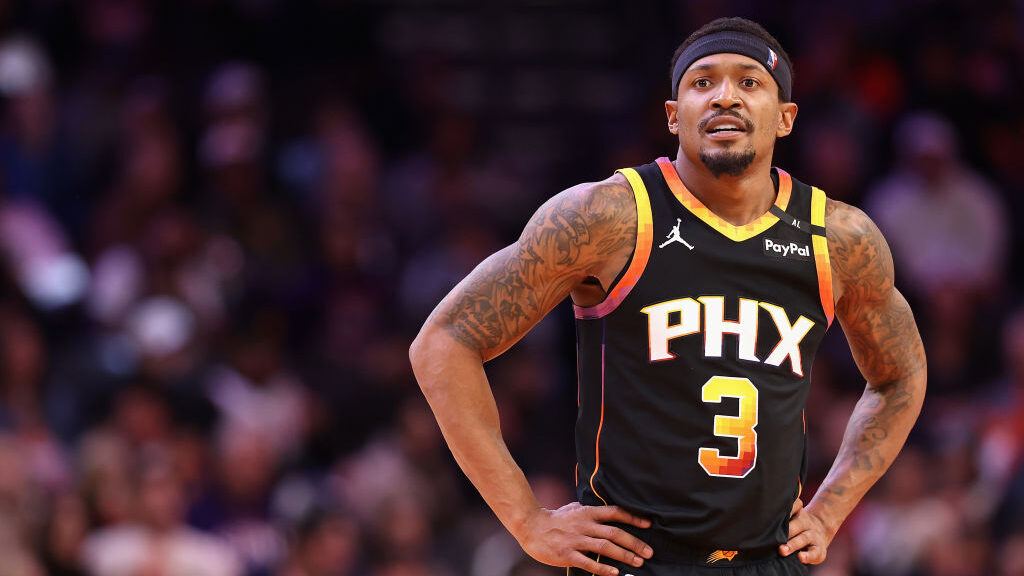There wasn’t just one reason why Bradley Beal wasn’t a fit in Phoenix.
Various injuries, a thin roster and constant coaching turnover were just a few of the nagging issues that plagued the Suns during Beal’s two seasons here.
Beal’s play (when healthy) also took a hit throughout his Phoenix tenure, a byproduct of not being able to be himself, according to his agent Mark Bartelstein.
“The big part of the problem is that Brad got away from his identity and who he is as a player,” Bartelstein told Mark Medina of Sportskeeda.com. “Brad made a lot of sacrifices in his individual game with all good intentions to help the team be successful. But it took him away from what he does best, which also led itself to the team not playing as well.
“He is always going to play the right way. He’s always going to be selfless,” he added. “But if you have Brad Beal on your team, you have to let him be Brad Beal. Otherwise, it doesn’t make sense and you’re not getting the best version of him.”
Two seasons of underperformances, however, wasn’t the nail in the coffin that solidified Beal’s reported buyout with the franchise.
That was decided after the Kevin Durant trade, Bartelstein said.
“We came to the conclusion after looking at all the things, their trade with Houston and looking forward, the right thing for us would be to turn the page and go to a different spot where he would be a huge point of emphasis,” he said.
According to Brian Windhorst of ESPN, if Durant would have accepted a trade to Minnesota where the Suns would have received a center like Rudy Gobert instead of a guard like Jalen Green, there could have been a path for Beal to return to the Suns.
That deal never came to fruition and at that point, the writing was on the wall.
Still, the Suns had made attempts to trade Beal in the middle of the year last year and moving off his contract in anyway possible was always a consideration for Phoenix.
Among the biggest hangups in getting Beal off the roster centered around his no-trade clause. With that in play, it forced the Suns to ultimately reach a buyout.
“We had a no-trade clause for a reason. It was to make sure that Brad could choose where he wanted to play. That was the whole purpose of the no-trade clause – to choose where he could play,” he said.
Another twist in the process was the familial battle between Bartelstein and his son Josh, the CEO of the Suns.
Mark, however, downplayed the unique circumstance, adding he and Josh knew “how to handle it the right way.
“There are a lot of things that we have to deal with, and you work through. Josh wasn’t just involved. It was (owner) Mat Ishbia, (GM) Brian Gregory and (head coach) Jordan Ott. There were collective conversations among everybody to get to the right place. It’s never normal when you’re dealing with your son. But we know how to handle it the right way,” he said.

